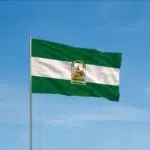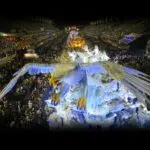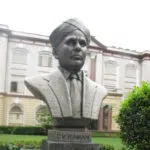National Science Day on February 28 each year marks a special celebration for Indians. It’s the anniversary of the day Indian physicist Sir C. V. Raman made a significant scientific discovery. Today, National Science Day showcases the importance of science in everyday life and gives regular people an opportunity to see how scientific innovation can improve lives and encourage societal development. Many scientific centers and institutions hold debates, scientific competitions, lectures, T.V. shows, and even public speeches to celebrate this day. If you’re passionate about science and will be pursuing a science degree, have a look at these science scholarships for some funding.
History of National Science Day
Chandrasekhara Venkata Raman, more commonly known as C.V. Raman was a gifted child. He finished school very early, completing his secondary education at 11 and his higher secondary education at 13, later receiving his bachelor’s degree at 16. While he’d studied physics — passing with honors — he took up accounting as a ‘safe choice,’ only quitting when he was finally offered a teaching position at a college in Calcutta (now Kolkata), in India, in 1917.
Four years later, on a trip to Europe, Raman first noticed the striking blue color of icebergs and the Mediterranean Sea. He couldn’t figure out how this color appeared and set out to disprove the prevailing theory of the time, which alleged that the sunlight scattered upon entering Earth’s atmosphere, causing different colors to appear.
Raman began conducting experiments by himself, later assigning research responsibilities to his student, K.S. Krishnan. They discovered that when light passes through a transparent material, some light emerges scattering in different directions.
These results, published in 1928, took the scientific community by storm, so much so that Raman fully expected to be awarded the Nobel Prize in the same year. He was overlooked that year and the following year. However, Raman’s confidence in his discovery did not waver and he was so sure of himself that he booked two tickets — one for himself and one for his wife — on a steamship to Stockholm in July when the announcement of the Nobel Prize would be in November. He won the Nobel Prize in Physics that year, drawing attention to his work and the Indian scientific community.
National Science Day timeline
Adolf Smekal, an Austrian physicist, describes the scattering of light effect, but it’s only still a theory.
A week before Raman publishes his now-famous theory, Soviet physicists Grigory Landsberg and Leonid Mandelstam observe the scattering of light effect in crystals, but they publish their paper months after Raman and, thus, are not recognized as the original discoverers of this effect.
Physicist Peter Pringsheim from the University of Berlin studies and reproduces Raman's theory of scattered light perfectly, calling this effect the Raman Effect.
The National Council for Science and Technology Communication (N.C.S.T.C.) asks the Government of India to declare February 28 as National Science Day to promote science and scientific thought.
The National Council for Science and Technology Communication promotes this event by announcing special National Science Popularization awards, which award scholarships, grants, and other prizes to winners.
National Science Day FAQs
What is the theme of National Science Day in 2022?
India celebrates with science-oriented themes each year to bring more attention to this area of learning. Past themes ranged from information technology to waste management, and 2022’s theme is an ‘integrated approach in science and technology for a sustainable future.’
What is the importance of National Science Day?
Celebrated in November, World Science Day highlights the importance of science in society and the need to engage the public in debates on emerging scientific issues. It also underlines the importance and relevance of science in our daily lives
How do we celebrate National Science Day?')
Colleges and science institutes across the country celebrate National Science Day by organizing public speeches, lectures, debates, quiz competitions, science model exhibitions, science movies, and science exhibitions on themes and concepts.
National Science Day Activities
Read up on C.V. Raman
Learn more about this influential scientific pioneer whose work inspired generations of scientists. Read his scientific papers, watch movies about his life, or check out how his accomplishments influenced the global science community.
Celebrate science
Honor the underlying theme of this day — celebrate science and exploration in all its forms. Discover new theories you never knew before, perform your own scientific experiments, and watch scientific greats talk about their love for this branch of learning.
Encourage scientific exploration
Share your love of science with others around you. Introduce them to this day, to C.V. Raman, and to various innovations that use science to make our lives better.
5 Facts You Need To Know About C.V. Raman
A man of firsts
Raman made history as the first 'non-white' person, the first Asian, and the first Indian to win the Nobel for his work.
He quit a major fellowship
The Royal Society of London elected Raman as a Fellow in 1924, an honor given only to a few; he resigned for reasons unknown, becoming the very first Indian Fellow to do so.
He was knighted too
His work on the Raman Effect saw him get knighted by the British government in India; his official title was 'Sir Chandrasekhara Venkata Raman.'
He pioneered Indian research
He was the main contributor to most research institutions built in India during his active years, including the Indian Journal of Physics and the Indian Academy of Sciences.
He stayed true to science
He opposed the then-prime minister of India, Jawaharlal Nehru's, policies on scientific research so much that he smashed his 'Bharat Ratna' medallion — which is the highest civilian award given to Indians — given to him by Nehru.
Why We Love National Science Day
We love science
It brings order to a chaotic world. It gives us answers to questions we didn't know we had and is a constant journey of amazing discovery.
We think scientific efforts need honoring
We're all for highlighting efforts people make towards science in the interest of more exploration and invention in this field. This day honors them.
We learn about science in everyday life
National Science Day provides regular people with an opportunity to develop an interest in science by understanding how this branch of learning can solve everyday problems. This, in turn, increases the interest in science and scientific activities.
National Science Day dates
| Year | Date | Day |
|---|---|---|
| 2025 | February 28 | Friday |
| 2026 | February 28 | Saturday |
| 2027 | February 28 | Sunday |
| 2028 | February 28 | Monday |
| 2029 | February 28 | Wednesday |























